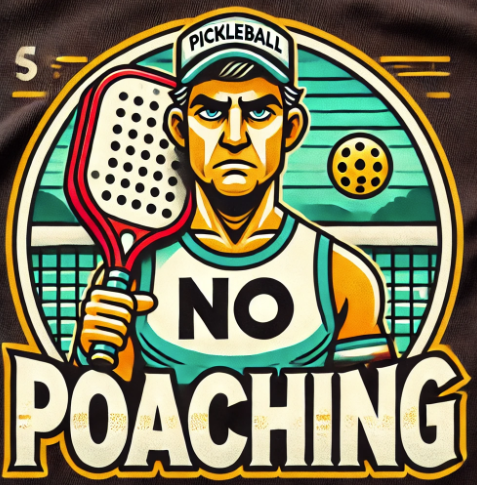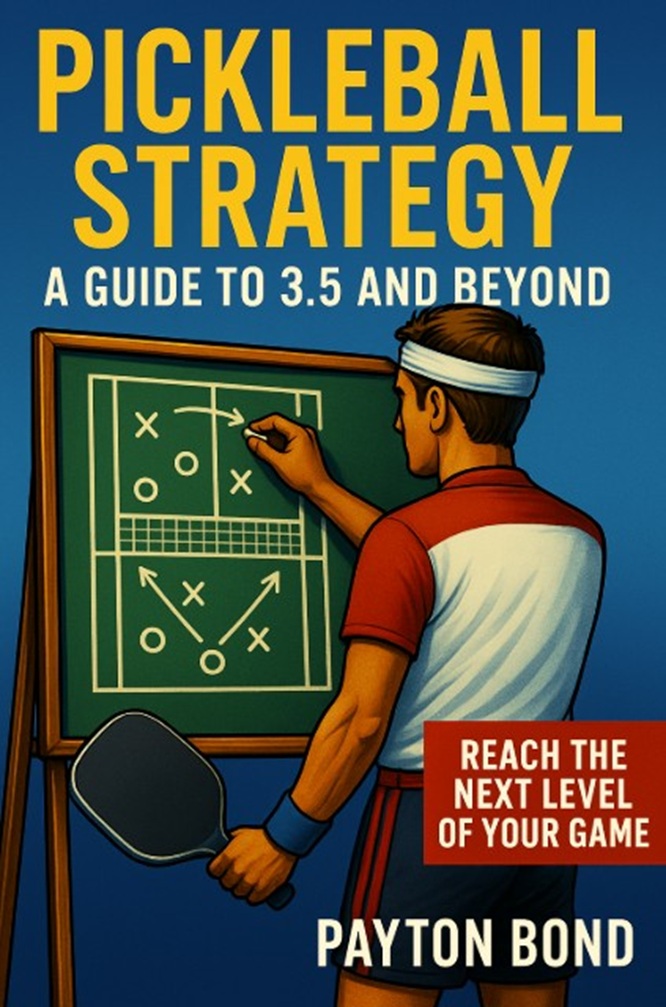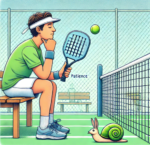
To Poach or Not to Poach: What’s Your Style?
When I started playing Pickleball, it took me a while to understand that poaching is an important part of playing effectively. Whether you’re covering for a partner who’s late getting to the line after a serve return or stepping in with a strong forehand instead of their backhand, poaching isn’t just strategy, it’s a skill that elevates your game.
As I played more in open play venues, I realized the need to tread lightly with new partners. How they reacted to poaching (or whether they poach themselves) told me a lot about their style of play, and even their personality.
I tend to avoid poaching in non-competitive games where I sense my partner and opponents are not aggressive and just want to play a fun, casual game. I am aware that my partner and opponents are learning and want to hit all their shots and not be with someone jumping in front of them or facing someone attacking them aggressively.
Here are some poaching personalities I’ve observed over the years. Maybe you’ll recognize yourself, or your partner, in one of these!
1. The Stay-in-Your-Lane Partner
For these players, poaching can feel like a personal insult. They might interpret their partner’s poach as, “I don’t trust you to make that shot.” These players are generally less experienced and just want to have fun and hit their shots.
They value autonomy and control over their side of the court. If you miss a poach attempt, they’ll sometimes respond with comments like, “I had that!” or “I could’ve made that shot.”
When I play with these partners, I only poach if my opponents are doing it, and the game gets competitive. I’ve learned that calling out my poaching intentions early, and clearly, is the best way to avoid stepping on their toes, both literally and figuratively.
2. The Neutral Zone Player
These players don’t oppose poaching, they just prefer to stay out of it. Their motto? “You do you, and I’ll do me.”
They avoid poaching because they don’t want to upset their partner or risk making a play that backfires. While this approach works well in recreational games, it can lead to missed opportunities in more competitive play.
My tip for neutral players? Remember, poaching isn’t about stealing glory, it’s about teamwork. Trust yourself to step in when the opportunity arises.
3. The Polite Poacher
Polite poachers tread lightly. Even in more competitive games, they only poach when encouraged and often apologize, even when they succeed.
After an attempted poach, you’ll often hear, “Sorry, sorry, sorry!” or “Was that okay?” Their hesitation limits their effectiveness, but their good intentions make them easy to play with.
Polite poachers: Confidence comes with practice—trust your instincts and own your shot!
4. The Panic Poacher
They know how to poach and may not do it often in non-competitive games… but when the pressure is on—especially in games they think they should be winning—panic poachers can go overboard.
Their mindset is, ‘If we’re losing, I have to fix it!’ This often leads to missed shots, partner collisions, or leaving the court wide open for opponents.
To the panic poacher: Relax during casual games and trust your partner in competitive ones. Composure wins more points than chaos!
5. The Pro Poacher
The pro poacher is the gold standard. They assess the game and players, stepping in only when it’s a high-percentage play in a competitive match.
They anticipate the flow of play, communicate clearly, and make strategic moves that benefit the team. Confidence, skill, and synchronicity with their partner make them a dream to play with.
I’m by no means a pro poacher, but I try to study my partner’s tendencies and communicate my intentions. My best poaches are the ones my partner expects. I only poach shots in competitive games and not in casual rec games where I sense it won’t be appreciated.
For me, poaching isn’t just about stepping in for a shot, it’s a reflection of your approach to the game. Whether you’re a “stay-in-your-lane” player, a polite poacher, or an aspiring pro, understanding your tendencies can help you and your partner play well together.
What’s your poaching personality, and how does it affect your game?
Check out Payton Bonds new eBook!
Pickleball Strategy – A Guide to 3.5 and Beyond
See it on Amazon.

👤 Follow Payton Bond
All Star and Top Contributor on multiple Facebook Pickleball Forums.
Contributor at TheKitchenPickle.com.
Visit Payton Bonds Facebook Page
Keep Learning
- Watch the video 🎥 below on Poaching.
- Read this post on Poaching: Poaching in Pickleball – When and How to do it.
- See the related posts below on Pickleball Etiquette.
Poaching Instructional Video
Courtesy of “The Pickleball Guy”
Watch this video on Pickleball Poaching on Youtube.







